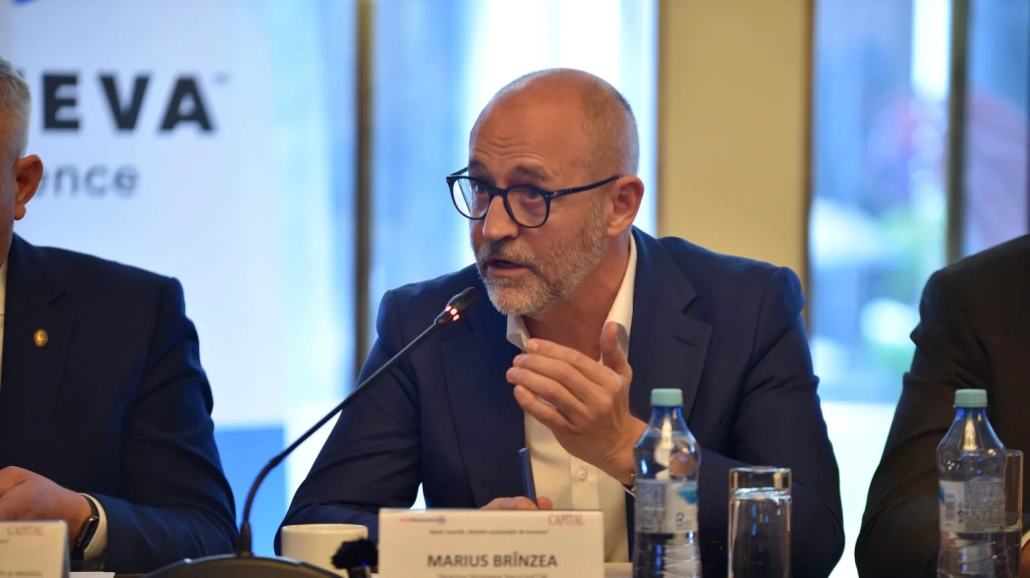Reporting sustainability performance is not enough! Marius Brînzea, Reciclad’OR: “Until the law sanctions us, the market will sanction us”
The concept of sustainability is no longer a novelty in society. Even so, there are uncertainties. The idea is a deep one, involving many details, interpretations and so on. And until the situation is clearer, it will take longer. This is the opinion of Marius Brînzea, Reciclad’OR Strategy Director.
Marius Brînzea participated on Tuesday, April 16, at the Round Table organized by Capital and Infofinanciar Magazine. This time, the discussion revolved around the theme of sustainability models in business. The Director of Strategy at Reciclad’OR mentions from the beginning the fact that certain details need to be clarified, certain concepts that have ended up being misinterpreted.
Brânzea, Reciclad’OR: “The market influences the concerns of companies”
“A false impression has been created on the fact that sustainability reporting will increase the degree of concern of companies for this field”, underlines Marius Brînzea. “It is erroneous. The concern of companies for sustainability is not given by a legal obligation to report, but by competitiveness. Because it must be looked at in more detail. Until you report something, you have to do, stand out. Otherwise, you will not be noticed, you will be removed from the market”.
After that, the representative of Reciclad’OR wants to place the initial moment also in certain temporal coordinates: “Awareness became more and more in the attention of companies with the year 2018. That is, when the circular economy plan was adopted,” he says. “And now we have a new plan for the circular economy. The companies understood very well that they have to align themselves with the idea of the European Green Deal. In these circumstances, we already find that even Romanian companies are more and more attracted to sustainability”.
The sustainability report and the false impression
Then, Marius Brînzea explained what would be the best model to follow in order to adopt the best sustainability practices at the present time. “And let’s clarify, the circular economic model is the main facilitator for sustainability. And the companies have to choose the direction they will go, either evolve gradually, or completely change the business model”, says Director of Strategy Reciclad’OR. “Otherwise, according to current trends, they will end up exiting the market,” he points out.
“To incrementally improve the model, companies have a number of options, options that you’ve already seen for years. Including in Romania”, argues Brînzea. He then lists some examples of behavioral models: “Rethinking the circular supply chain, reducing water consumption, reducing waste production are just a few examples.”
The law does not sanction
At the legal level, Marius Brînzea says that the situation is, again, ambiguous. “Sustainability penalty not yet determined.” Even so, in his conception, sanctions exist: “But, I want to emphasize, because it is a very important element, until the moment when the law will sanction us, the market will sanction us. Which is much more painful.”
The company Reciclad’OR was established in 2017. Today, the company is the market leader and the transfer of responsibility. He succeeded in meeting all these wishes of his shareholders, as well as of the more than 1000 partner companies. It appeared on the market as a natural consequence of the activities of the companies that founded it. The company’s shareholders are Maspex România SRL, Unicom Production SRL (Urlăți), Colector Glass SRL, Le Manoir SA, Klaus SRL (Artesana).
Sustainable business models
On April 16, Capital and Infofinanciar organized the Round Table event “Sustainable business models”. Experts from various fields, from public administration, NGOs, communication or the business environment, were brought to the same table. And during the discussions at the event, the topic of discussion was the correct approach to sustainability reporting in business.
It should be mentioned that, from January 1, 2024, all public interest companies with more than 500 employees fall under the scope of the European CSRD (Corporate Social Responsibility Directive). And this newly introduced directive brings requirements for more detailed reporting on the impact of businesses on the environment, society and the economy.
Thus, companies are obliged to make public more information about the sustainability actions they carry out. In this report, companies will include data from three broad areas: environmental factors, social factors and governance factors. In Romania, it is expected that this European Directive will influence over 6000 companies.
Source:https://evz.ro



